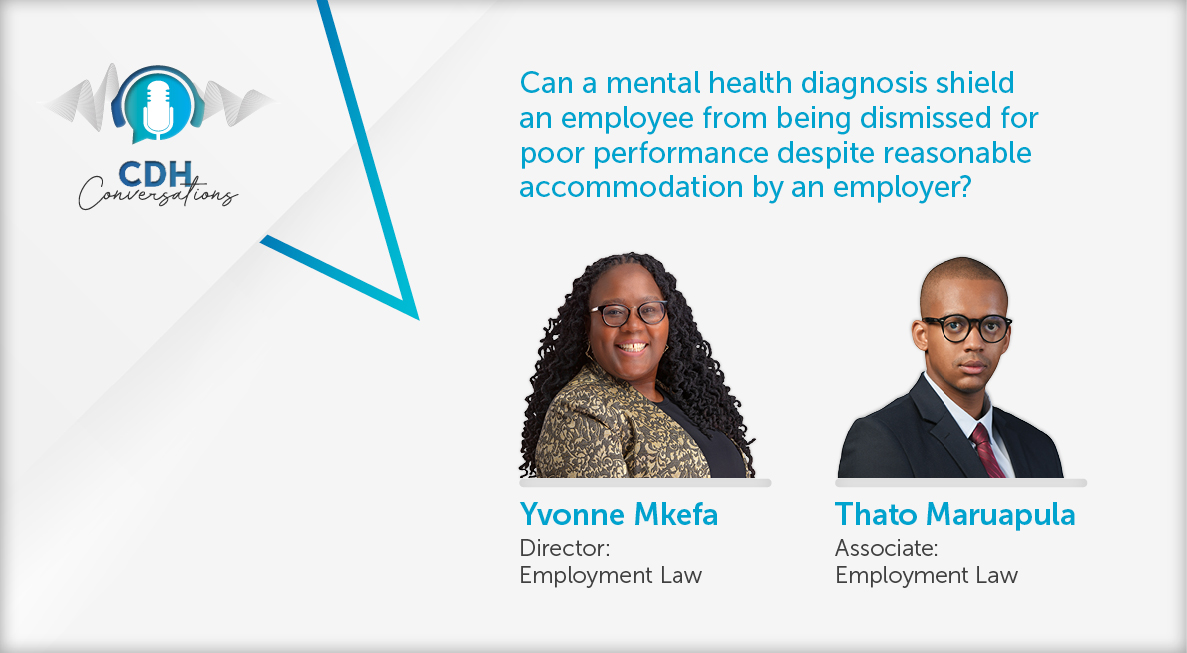Public Benefit Organisations and the special tax dispensation under the Disaster Management Tax Relief Bill
One such measure presented by the Tax Relief Bill is the introduction of a “COVID-19 disaster relief organisation”, which is defined as “any non-profit company as defined in section 1 of the Companies Act, 71 of 2008, any trust, or any association of persons that has been incorporated, formed or established in the Republic that carries on activities for purposes of disaster relief in respect of the COVID-19 pandemic” (Relief Organisation). According to section 7 of the Tax Relief Bill, any Relief Organisation must be deemed to be a public benefit organisation (PBO) for purposes of section 30(1) of the Income Tax Act, 58 of 1962 (ITA), if that Relief Organisation:
- carries on a public benefit activity contemplated in section 30(1)(a) of the ITA in relation to the definition of “public benefit activity”;
- meets the requirements set out in section 30(3) of the ITA; and
- is approved as a PBO by the Commissioner, subject to:
i. that Relief Organisation complying with all the conditions imposed by section 30 of the ITA in respect of a PBO; and
ii. any power granted to the Commissioner to withdraw the approval of any PBO under section 30 of the ITA.
The purpose of introducing a Relief Organisation is to grant immediate tax exemption to those organisations that provide disaster relief in response to COVID 19, by deeming them to be PBOs. However, although “deemed to be a PBO”, a Relief Organisation is not automatically registered as a PBO. This deeming provision has thus been criticised for being unclear and somewhat misleading, as organisations not yet registered as PBOs would still be required to follow the necessary registration process to qualify for the above exemption. This has also been confirmed on the South African Revenue Service’s (SARS) website, where it states that all new applications for the registration of PBOs which act as Relief Organisations must still be submitted to the Tax Exemption Unit for approval.
However, unlike other PBO registrations, applications by Relief Organisations will be treated urgently, and all documents which are received in support of such applications will be finalised within seven working days (while, under normal circumstances, the approval process can take months). Applicants are advised to download the required application documents, complete such documents and schedule an online appointment with a branch office to submit the documents. Applicants must also indicate that the application relates to an organisation which provides relief in response to COVID-19.
Once approved as a PBO, the Tax Relief Bill does not make it clear whether the Relief Organisation will have indefinite PBO status or whether its status would be applicable for a limited period. It goes without saying, however, that when disaster relief in response to COVID-19 is no longer required, the Relief Organisation would similarly have fulfilled its function and could, in principle, be deregistered.
The initial draft Tax Relief Bill was intended to operate for a limited period of four months, beginning 1 April 2020 and ending on 31 July 2020. It has been proposed that the timeframe to submit applications for Relief Organisations under the Tax Relief Bill be extended to 30 September 2020, which means that after this date, the standard PBO application process would have to be followed. The water does become somewhat murky where an application has been submitted to SARS and remains unapproved by 30 September 2020, as the Tax Relief Bill provides that if the Commissioner has not approved a Relief Organisation as a PBO by 30 September 2020, the organisation must:
- within six months; or
- as part of the dissolution of the organisation,
transfer or take reasonable steps to transfer its remaining assets to any PBO, institution, board or body or the government as contemplated in section 30(3)(b)(iii) of the ITA. Failure to do so will result in an amount of taxable income, determined at the end of the day on 30 September 2020, to be deemed to have accrued to that Relief Organisation on 1 August 2020. What is unclear, however, is what the position would be if:
- the Commissioner approved a Relief Organisation as a PBO after this date with retrospective effect; or
- an organisation submits its application in terms of the standard application process, requesting approval with retrospective effect.
While there are grey areas that exist in respect of the special tax dispensation available to Relief Organisations, organisations that are providing disaster relief in response to COVID-19 are urged to submit their applications as soon as possible (considering that 30 September 2020 is fast approaching) to avoid falling into the uncertain territory of an unapproved Relief Organisation by 30 September 2020.
The information and material published on this website is provided for general purposes only and does not constitute legal advice. We make every effort to ensure that the content is updated regularly and to offer the most current and accurate information. Please consult one of our lawyers on any specific legal problem or matter. We accept no responsibility for any loss or damage, whether direct or consequential, which may arise from reliance on the information contained in these pages. Please refer to our full terms and conditions. Copyright © 2026 Cliffe Dekker Hofmeyr. All rights reserved. For permission to reproduce an article or publication, please contact us cliffedekkerhofmeyr@cdhlegal.com.
Subscribe
We support our clients’ strategic and operational needs by offering innovative, integrated and high quality thought leadership. To stay up to date on the latest legal developments that may potentially impact your business, subscribe to our alerts, seminar and webinar invitations.
Subscribe



